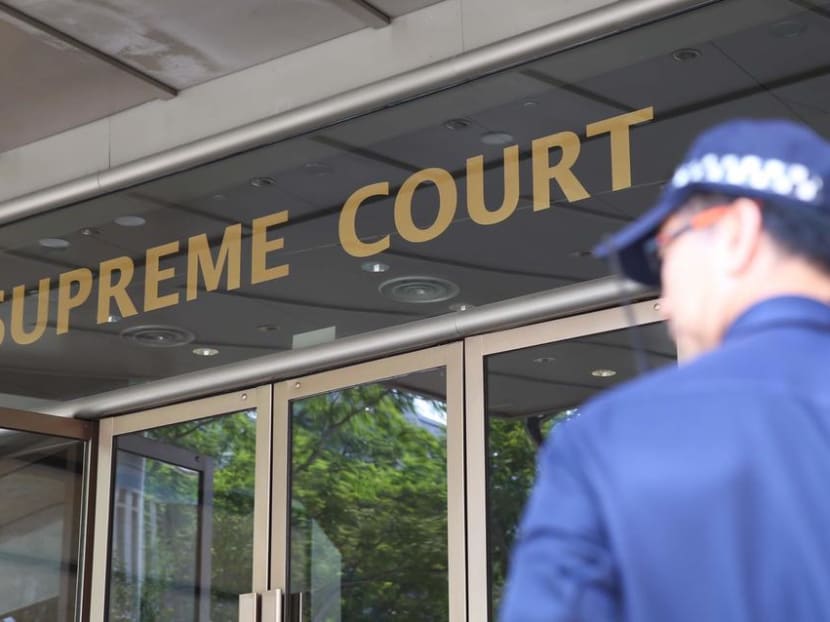District judge rapped for copying too much from prosecution in ruling over meth case
SINGAPORE — In his ruling over a drug consumption case, a district judge copied the prosecution’s closing arguments so substantially that the High Court has said it could not be relied on to justify the accused’s conviction and sentence.

When appealing to the High Court, lawyer Zero Nalpon lodged a complaint that District Judge Mathew Joseph had plagiarised the prosecution’s closing submissions to the point that the grounds of decision were “worthless”.
SINGAPORE — In his ruling over a drug consumption case, a district judge copied the prosecution’s closing arguments so substantially that the High Court has said it could not be relied on to justify the accused’s conviction and sentence.
Nonetheless, Justice Aedit Abdullah upheld District Judge Mathew Joseph’s decision to convict Lim Chee Huat on one charge of consuming methamphetamine and sentence him to 11 months’ jail.
Justice Aedit noted that there was enough evidence for District Judge Joseph to have come to this decision and dismissed Lim’s appeal against his conviction and sentence on Friday (May 24).
In response to TODAY’s queries on whether he will be facing disciplinary action, a State Courts spokesperson said: “The State Courts are looking into the matter and will not be able to comment further at this time.”
THE TRIAL AND APPEAL
Lim’s lawyer Zero Nalpon had argued, during Lim’s trial in the State Courts, that his client had unknowingly bought the drugs as medication from a sinseh (Chinese physician) in a Hougang wet market to cure his back, ankle and neck pain.
Lim, 57, was arrested in November 2016 when officers from the Central Narcotics Bureau visited his home, and his urine samples tested positive for methamphetamine. The “medication” was found to contain traces of methamphetamine, cocaine and ketamine.
Lim, a first-time offender, then claimed trial to his offence. He was convicted and sentenced in the State Courts in September last year.
When appealing to the High Court, Mr Nalpon lodged a complaint that District Judge Joseph had plagiarised the prosecution’s closing submissions to the point that the grounds of decision were “worthless”.
He pointed out that even a typographical error that appeared in the prosecution’s arguments had appeared in the judge’s document.
Mr Nalpon added that District Judge Joseph failed to mention the defence’s arguments in his grounds of decision as well, which made a “mockery of the judiciary” and showed “clear bias” to the prosecution.
In light of these alleged deficiencies, Mr Nalpon asked for the case to be sent back to the State Courts to be re-heard before a different judge.
Deputy Public Prosecutors Isaac Tan and Chin Jincheng accepted that the ruling was “strikingly similar” to their submissions, but argued that District Judge Joseph considered the case at trial by referring to matters not in their arguments in his grounds of decision.
THE HIGH COURT RULING
Justice Aedit ruled that the district judge had indeed copied in a “substantial and significant” way.
“In the present case, the district judge must have either extensively typed out the prosecution’s closing submissions or had someone else do so, which would have been an utter waste of time and effort; or he must have cut and pasted the submissions into his judgment,” he said.
This “either raises the questions of whether any consideration was given to the defence’s arguments and if the district judge properly weighed the strength of the parties’ submissions”, he added.
Justice Aedit also noted that while he was not provided the reasons why the district judge had copied the prosecution’s submissions so substantially, the “pressures of work are not a sufficient reason”, as “all jobs these days are stressful and demanding”.
“Here, the exercise of judgement was entirely absent. Here, the judge, at least as can be seen from his written judgment, did not judge at all,” he said.
Still, Justice Aedit said he did not see a need to send the case back to the State Courts, as the evidence did not depend on assessing the demeanour of the witnesses.
Given the nature of the defence’s case, the court should have focused on assessing the consistency and probabilities of Lim’s defence, he said.
He then dismissed the appeal, as he found that Lim’s evidence — that a peddler sold him drugs — was weak and there were inconsistencies in his testimony.
“Even if (Lim’s) case is to be believed, it is hard to envisage that someone might take medication bought in such circumstances without considering that there might be some risk of an illicit substance being present in the medication. Only perhaps the most trusting and naive would consume the medication so unwittingly,” Justice Aedit said.
For consuming a controlled drug, Lim could have been jailed up to 10 years and fined up to $20,000.











